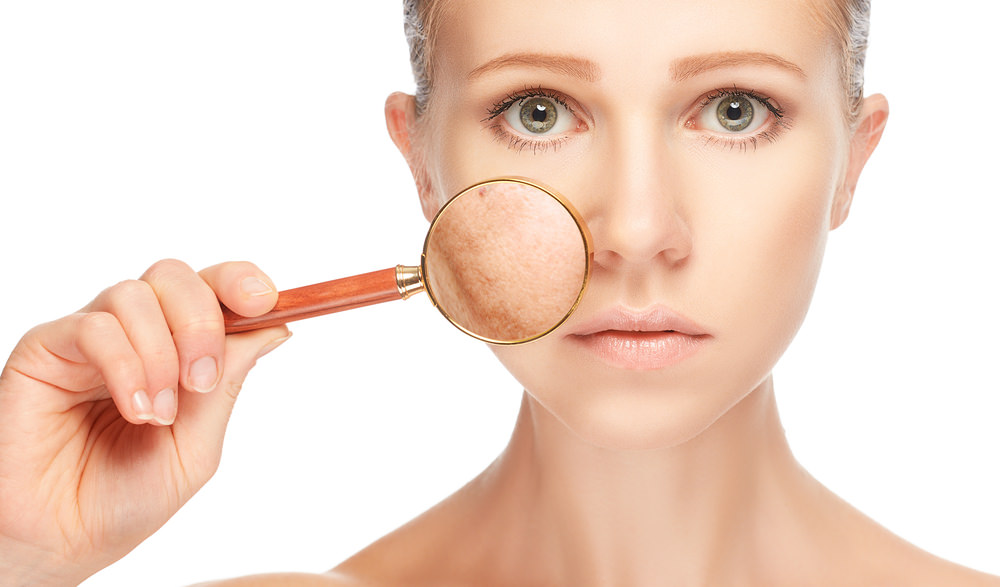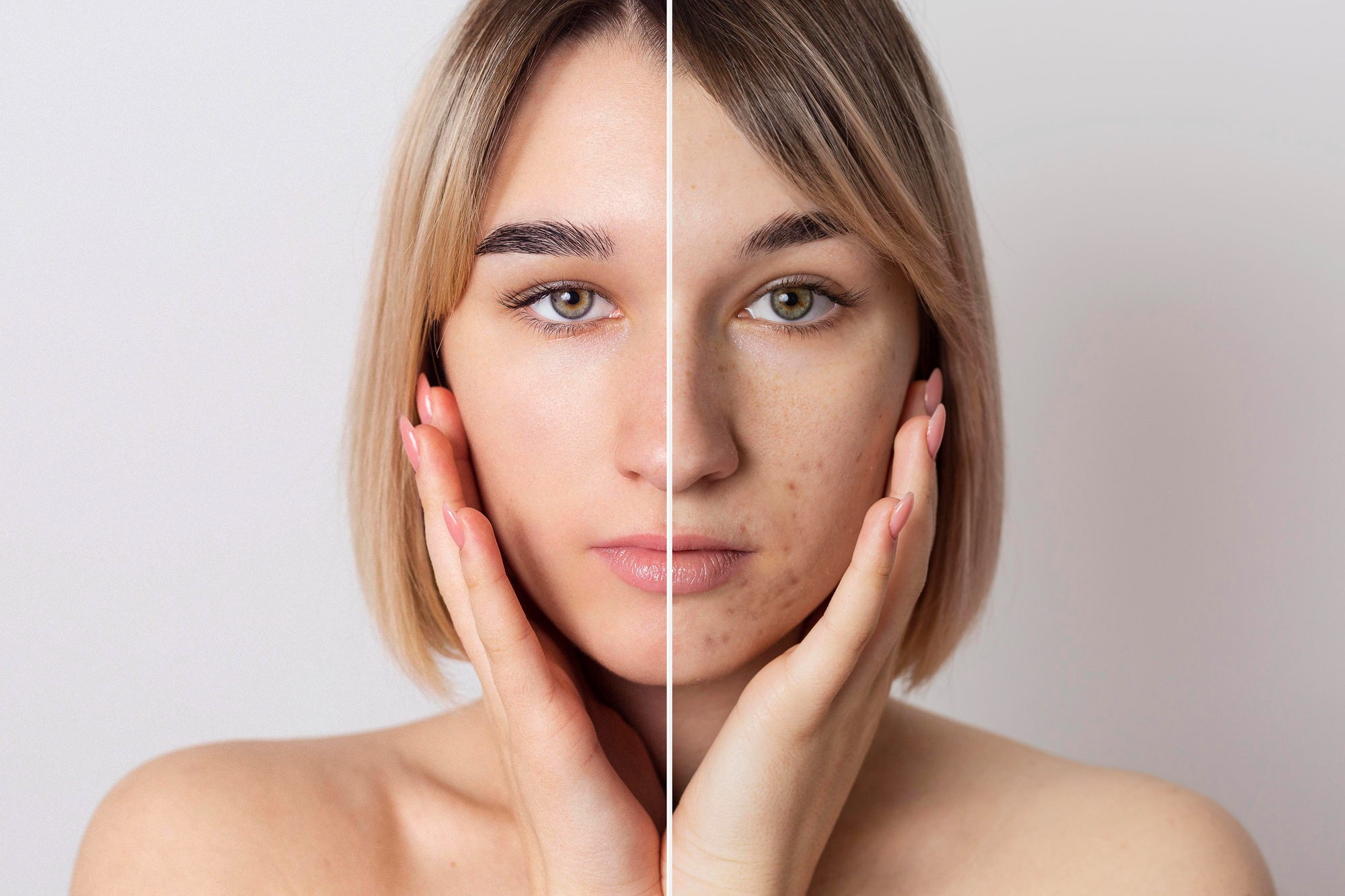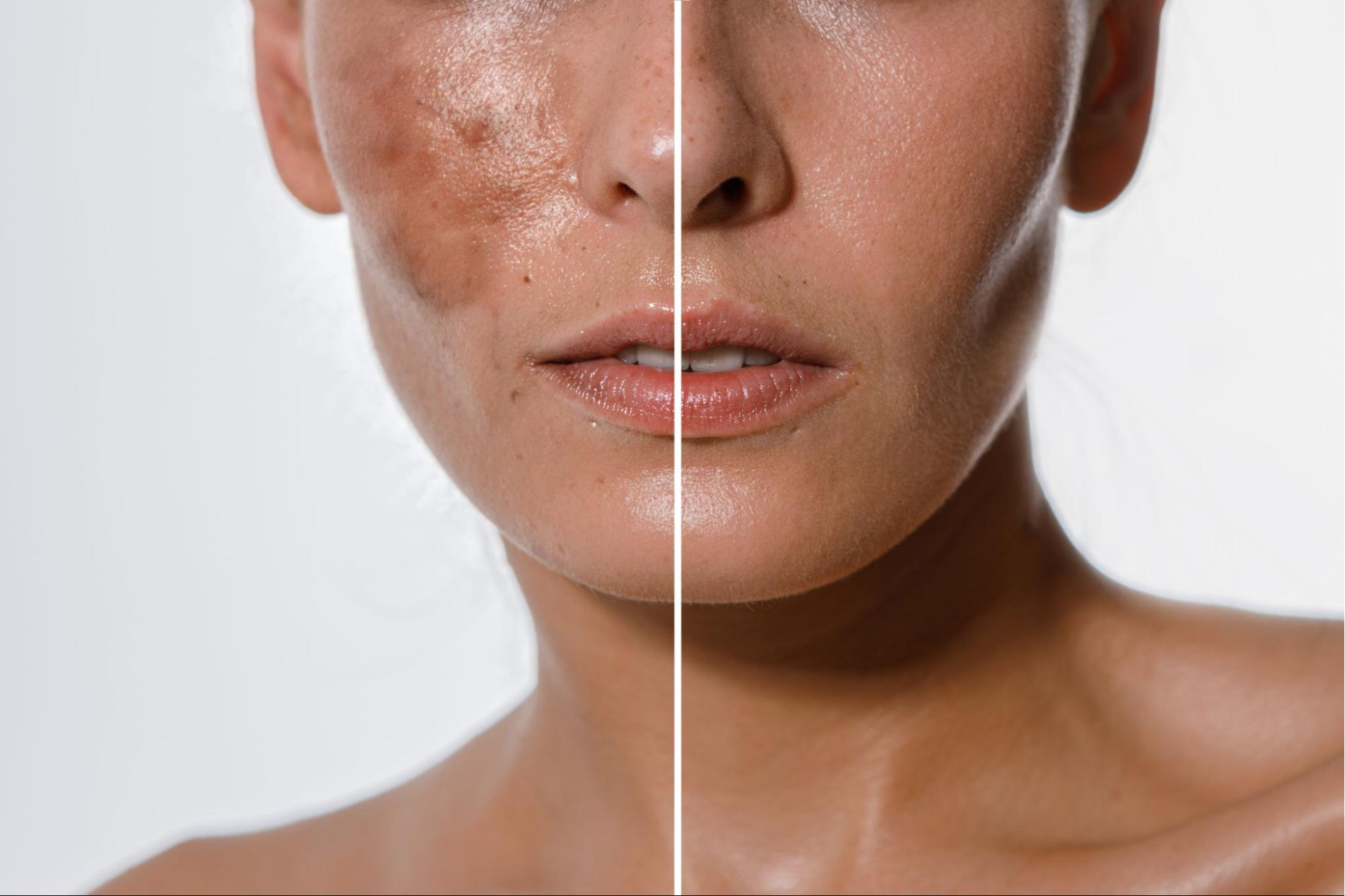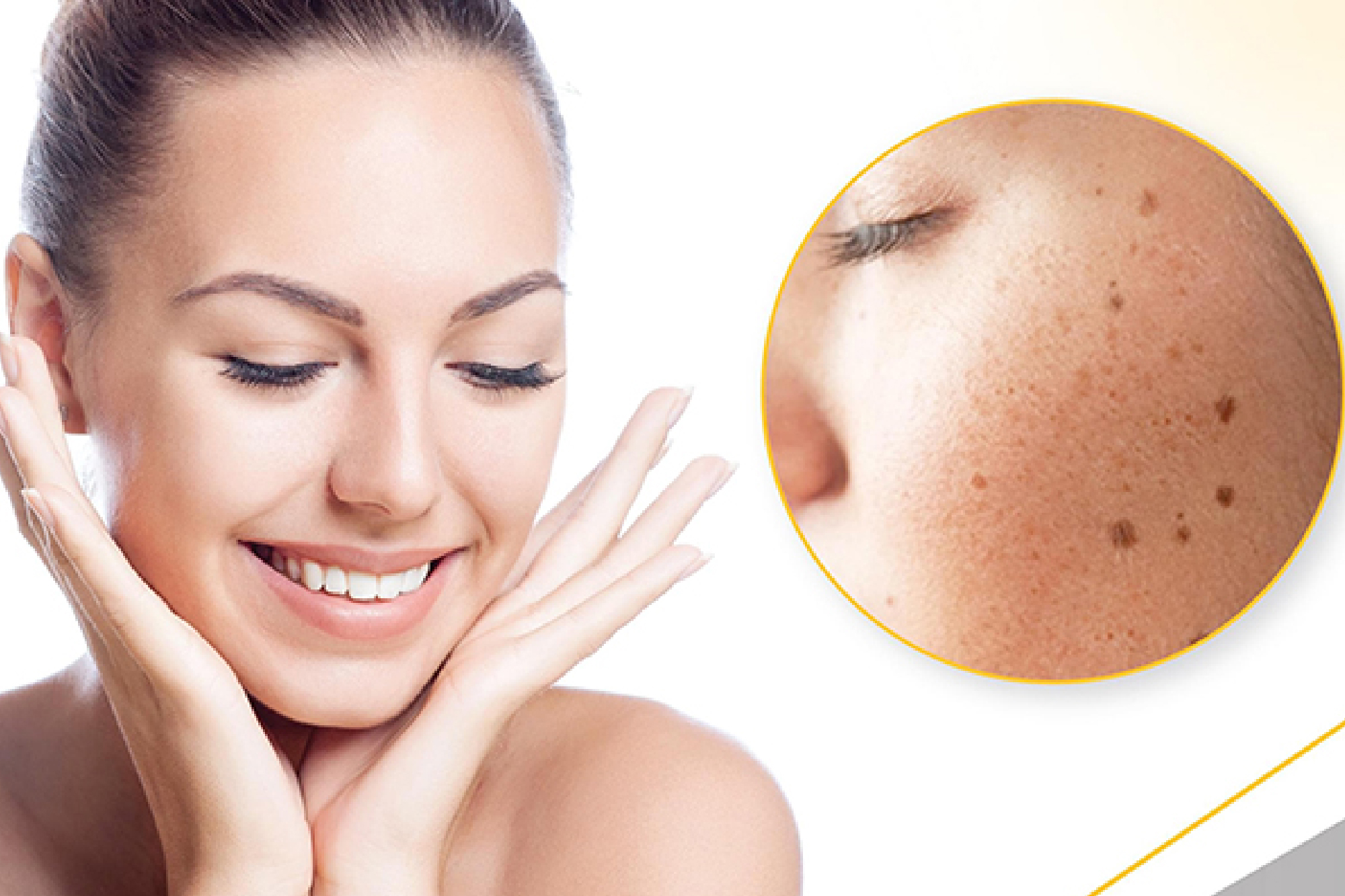
Pigmentation refers to the darkening or discoloration of the skin due to an increase in melanin production. Common pigmentation issues include melasma, age spots, post-inflammatory hyperpigmentation, and sunspots. Treatment aims to reduce dark spots, even skin tone, and improve skin texture.
Pigmentation Treatment Options
1. Topical Treatments
- Skin-Lightening Creams : Contain ingredients like hydroquinone, kojic acid, azelaic acid, or licorice extract. These help reduce melanin production and lighten dark spots.
- Retinoids (e.g., Retinol, Tretinoin) : Stimulate cell turnover and can help fade pigmentation over time. They also improve skin texture.
- Vitamin C Serums : Known for their antioxidant properties, vitamin C serums help brighten the skin and reduce the appearance of dark spots.
- Alpha Hydroxy Acids (AHAs) and Beta Hydroxy Acids (BHAs) : Exfoliate the skin and can help with mild pigmentation issues by promoting new skin cell growth.
2. Chemical Peels
- Superficial Peels (Glycolic Acid, Salicylic Acid): These peels remove the outermost layer of skin, which can help reduce mild pigmentation issues.
- Medium to Deep Peels (Trichloroacetic Acid): Target deeper pigmentation but require a longer recovery time. They can effectively treat more stubborn dark spots.
3. Laser Treatments
- Fractional Laser Therapy: Targets pigmentation by creating microscopic injuries in the skin, which promotes collagen production and cell renewal.
- Q-Switched Laser: Specifically targets dark pigment without damaging surrounding skin, effective for treating melasma and age spots.
- Intense Pulsed Light (IPL): Uses light energy to target and break down dark spots, improving overall skin tone.
4. Microneedling
- Collagen Induction Therapy: Involves using tiny needles to create micro-injuries in the skin, which can help reduce hyperpigmentation by stimulating the healing process and collagen production.
5. Home Remedies and Natural Treatments
- Aloe Vera: Contains aloin, a natural depigmenting compound that can lighten hyperpigmentation.
- Apple Cider Vinegar: May help lighten dark spots when applied topically, due to its acetic acid content.
- Green Tea Extract: Has antioxidant properties that may reduce the appearance of dark spots over time.
6. Sun Protection
- Use Sunscreen Daily : Broad-spectrum sunscreen with an SPF of at least 30 helps prevent dark spots from worsening. Reapply every two hours if exposed to the sun.
- Wear Protective Clothing : Hats, sunglasses, and long sleeves can provide additional protection.
Pigmentation Treatment F&Q
Pigmentation is caused by an increase in melanin production. This can result from factors like sun exposure, hormonal changes, inflammation, certain medications, or genetic predisposition.
While complete cure depends on the type and severity of the pigmentation, many treatments can significantly lighten dark spots and improve skin tone. Consistent care and preventive measures can help maintain results.
Results vary depending on the treatment type and the extent of pigmentation. Topical treatments may take a few weeks to months, while procedures like chemical peels and laser treatments can show improvement in a few sessions.
Results vary depending on the treatment type and the extent of pigmentation. Topical treatments may take a few weeks to months, while procedures like chemical peels and laser treatments can show improvement in a few sessions.
Yes, but some treatments may be better suited for specific skin types. For example, people with darker skin may be more prone to side effects from aggressive treatments like deep chemical peels or certain laser therapies. A dermatologist can recommend the most appropriate option.
Some home remedies like aloe vera, turmeric, and green tea extract may help lighten mild pigmentation. However, for more severe cases, medical treatments are usually more effective.












